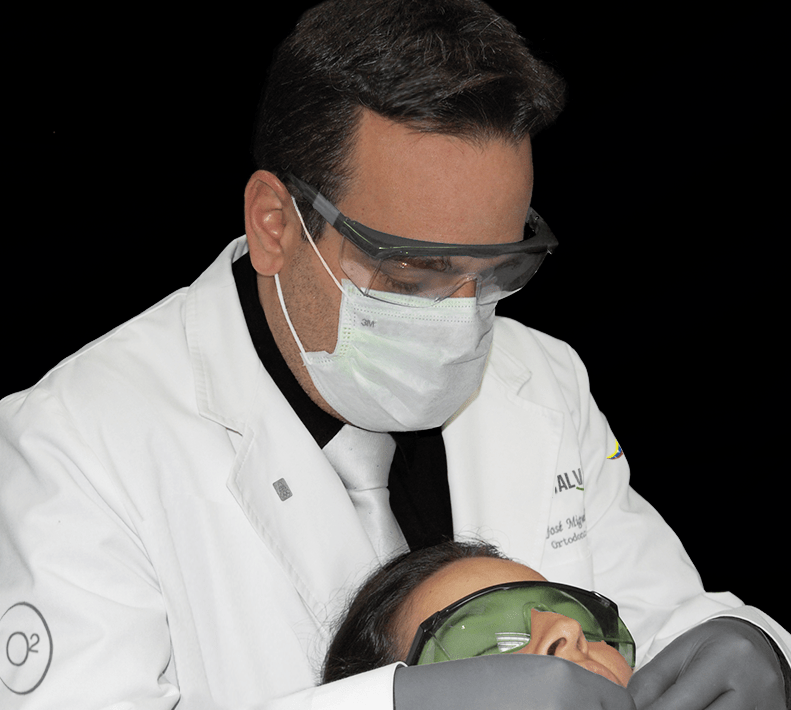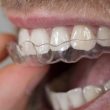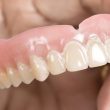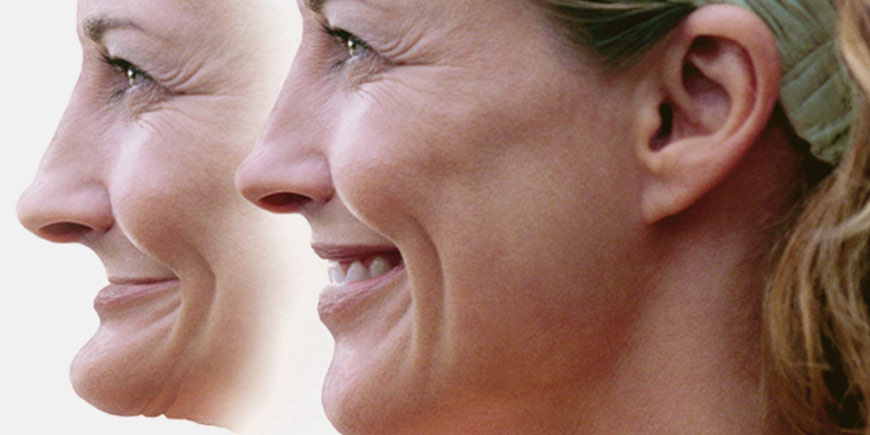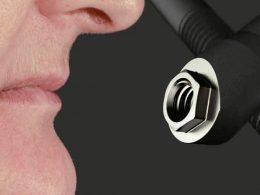Table of Contents
Have you ever tried to get dental implants and been told that you cannot because you do not have enough bone for it? It is definitely something that happens with some frequency and that, in the moment, causes great sadness and disappointment.
However, you will be very happy to know that there is an extraordinary implant solution for these type of cases. Currently there are so-called “long implants”, which instead of being fixed in the jawbone, are placed in other bones of the face; making fixed oral rehabilitation possible for those people who have lost a large part of their bone structure.
But the most logical thing is that you wonder why you lost the bone, why other people can have conventional dental implants and you cannot, not even with multiple grafts.
Next, we will explain the main reasons for the loss and deterioration of the jawbone, so that you can understand a little better the limitation of conventional implants and the great importance that zygomatic and pterygoid implants have today in the general process of oral rehabilitation.
Dental Extractions
When permanent teeth are extracted and they are not replaced as soon as possible with dental implants, a process of disuse atrophy immediately begins in the extraction areas. The bone that is formed there, where the alveolus or cavity that housed the dental roots was, begins to be reabsorbed little by little due to a lack of functional stimulus.
Surely you have ever heard the following phrase: “what is not used atrophies”, and this is precisely what happens to the jawbone after tooth extraction.
Maybe the greatest graphic example of atrophy resulting from disuse syndrome is that of a muscle that has been immobilized by a coup or a bone fracture. After a few weeks of inactivity, the muscles shrink, shorten, and harden. Something similar happens with the maxillary bone!
This type of atrophy is a normal and even physiological reaction of the organism, which in the face of the inactivity of an organ or structure designed to function, degrades or degenerates it when it is no longer active.
Pneumatization of the Maxillary Sinus
It is a factor particularly associated with the loss or extraction of the posterior teeth (molars and premolars) of the upper jaw.
The maxillary sinus is a pneumatic cavity that normally occupies a good part of the posterior portion of this bone. Its main function is associated with filtering the air we breathe.
When the upper molars are extracted, the air pressure exerted by the cavity on the apical alveolar bone, causes its progressive resorption. As a result, those paranasal sinuses enlarge, descend and occupy the space where the roots of the missing teeth were housed.
It is a slowly but surely progressing phenomenon, and the condition that most frequently contraindicates implant placement in the upper jaw.
The rate at which bone deteriorates, as well as the amount of bone loss that occurs, varies greatly between individuals. However, the greatest amount of bone loss occurs within the first eighteen months after extraction, and continues unstoppably throughout life.
Periodontal Disease
Periodontal diseases (gingivitis and periodontitis) are chronic infections of the gums that gradually destroy the bony support of natural teeth. Periodontal disease can affect one or more of the periodontal tissues: alveolar bone, periodontal ligament, cementum, and gingiva. Although there are many diseases that affect the supporting structures of the teeth, inflammatory lesions induced by dental plaque constitute the vast majority of periodontal problems.
Periodontitis is caused by bacteria that adhere to the surface of the tooth, together with a fairly aggressive immune response from the body. If gingivitis progresses to periodontitis, the bone that holds the teeth in place gradually deteriorates. The progressive loss of this alveolar bone can cause loosening and the consequent loss of teeth.
The bone that is lost is irrecoverable, since it is never re-formed, and furthermore; it seriously compromises the volumetric dimensions of the maxilla, reducing its height and width at the level of the alveolar ridge, which in the long run, can limit the placement of dental implants.
Prolonged Use of Removable Dentures
The vast majority of removable dentures, especially if they are extensive (partial and total), have acrylic bases that rest directly on the gum and the residual ridge. By not being completely stable and moving permanently during chewing, these prostheses exert a constant and devastating traumatic effect on the jawbone.
Proof of this, is that this type of prosthesis generally requires annual adjustments or rebasings to compensate for the loss of bone they produce.
In reality, neither the gingiva nor the edentulous ridge have the biological capacity to bear the great forces generated by the masticatory muscles. What happens is that in times past (before the discovery and development of dental implants), the profession had no alternative but to make use of them to, in some way, replace missing teeth.
Nowadays, things have changed a lot, and removable dentures as a permanent solution should only be indicated in cases of surgical contraindication for the placement of implants, patient rejection of surgery or financial limitations.
Facial Trauma
Sometimes car accidents, falls, sports injuries, personal assaults, and gunshot wounds; can cause fractures, teeth loss and bone loss at the maxillary level.
That is why it is so important to prevent any significant trauma to the facial or buccomaxillary region. The use of the seat belt when driving, the use of helmets when riding a motorcycle or bicycle, the use of mouth and face protectors during sports practice and the prevention of situations of personal violence; are common sense measures that no person should reject.
Cysts and Tumors
Jaw tumors and cysts are relatively rare growths or lesions that form inside the bone. They can be benign or malignant, and almost always must be surgically removed.
Maxillofacial Surgery for this type of injury usually leaves significant bone defects, which often contraindicate the placement of dental implants. This is particularly true in the case of very large or malignant tumors, which often require even the removal of marginal healthy tissue, to guarantee the complete and safe enucleation of the neoplasm.
Age and Osteoporosis
As we know, osteoporosis is a skeletal disease in which there is a decrease in bone mass density. Thus, the bones become more porous, the number and size of the cavities or cells that exist inside them increases and they become more fragile. It is a pathology that mainly affects women, particularly after menopause.
Fortunately, scientific studies on the matter confirm that osteoporosis does not lead to marginal bone loss. That is, it mainly affects areas of the body such as the extremities, hips and long bones. Therefore, it is not a contraindication for the placement of dental implants.
However, it is important to be careful with bisphosphonates, a commonly used drugs for osteoporosis.
Bisphosphonates can cause bone necrosis of the jaws and interfere with osseointegration of implants. In these cases, interconsulting with the treating Physician is essential in order to be able to temporarily suspend or adjust the medication (dose and route of administration) during the perioperative period associated with dental implants surgery.
“Severe Atrophy of the Maxillary Bone, Is One of the Main Indications for the Placement of Zygomatic and Pterygoid Implants”.
DENTAL TIP
Congenital Defects
In a few cases, the jaws may already be deficient from the moment of birth. There are many known syndromes that are characterized by including defects and malformations of the teeth and jawbones within their clinical manifestations.
Ready to Finally Get the Dental Treatment You Deserve?
All you have to do is send us your dental basic studies so that our professional team can analyze your case and offer you the best treatment option, many times impossible to pay in your home country.
Lower pricing does not always mean reduced quality. DENTAL VIP Specialists are trained in the most modern dental techniques, and we are equipped with state-of-the-art instruments.
We will offer the best price at the best quality for you in dental implants, all on 4, crowns and bridges, oral surgery, zygomatic implants, aesthetic dentistry, endodontics, full mouth reconstruction and other highly specialized treatments.
If you are considering coming to Venezuela for dental work, contact us for more information on how we can help you.
Our WhatsApp Business contact +58 414-9033547 and our email info@dentalvipcaracas.com are at your absolute and complete disposal to make inquiries and provide you with the best possible guidance in Dentistry.
